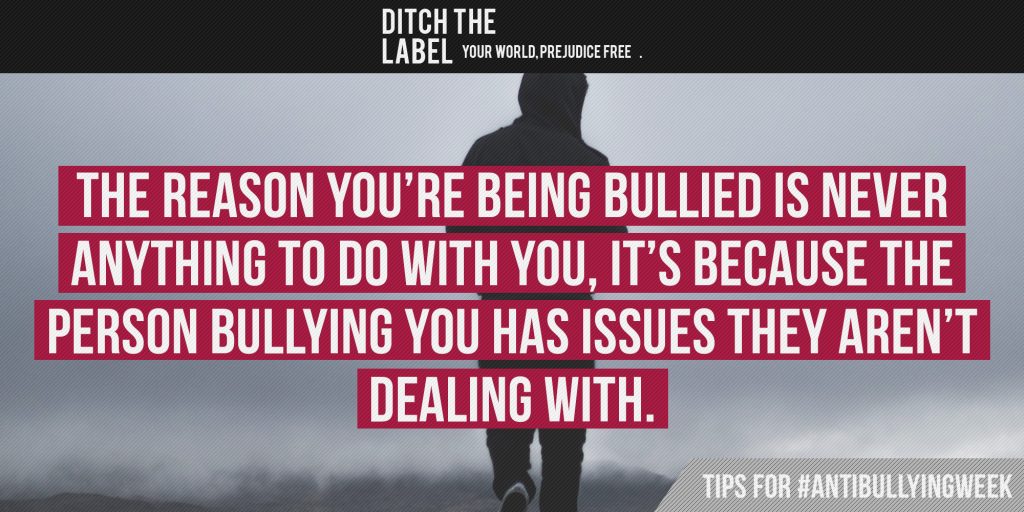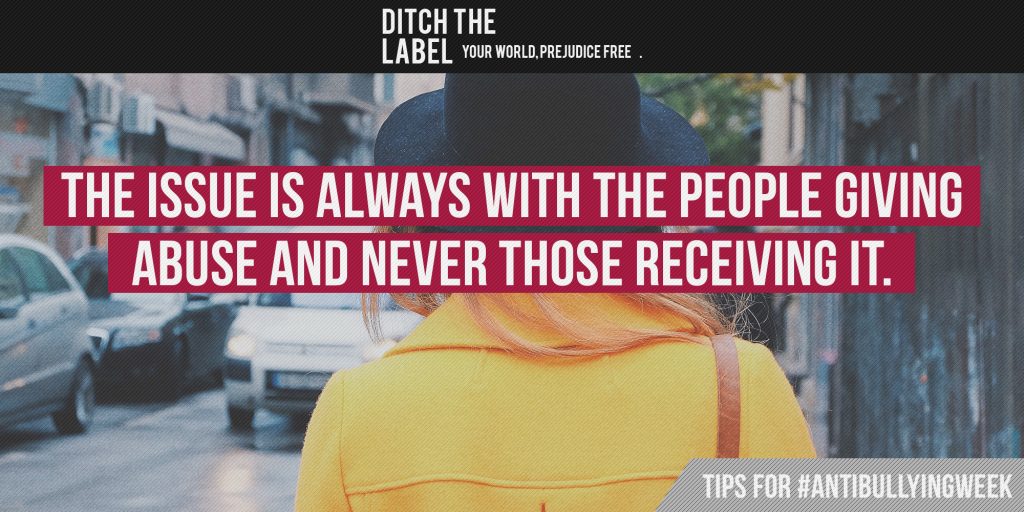Spoiler Alert: Bullies Don’t Exist
“Ignore it”, some people say – or just “tell a teacher”. Whilst good advice, sometimes it just isn’t enough to help you overcome bullying. We’ve been working hard behind the scenes to build up a greater understanding of bullying dynamics. As part of the process, we continue to grow our understanding of people who bully – exploring their lives, motivations and how they feel about themselves and others. Our results so far have been reassuring because we’ve been able to prove that bullying is a learnt behaviour and it can be changed.
Nobody is born a bully, in fact – bullies don’t even exist. Nor do victims for that matter because bullying is a behaviour and not an identity. Just because you’re being bullied, it doesn’t make you a victim – it just means that you’re being bullied. We know that people often exhibit bullying behaviours when they are going through stress or trauma, are being bullied themselves or when they have particularly low self-esteem and confidence.

First, Let’s Understand Why People Bully
We all respond to stress in very different ways, some of us isolate ourselves, others respond with positivity and others respond with aggression and bullying. The way in which we deal with stress is taught from a very early age and as such, it can be difficult for people to realise that what they’re doing is out of the ordinary. Once somebody realises that they are bullying another person, the process of resolving the response to stress is usually quite straight forward. For guidance on doing this, click here.
For the benefit of this article, we want to bring your attention to some common scenarios:
- Caught in the Middle of Parents:
Tom lives in a high tension household. His parents are going through a divorce as his dad left his mum for another woman. Now his dad is moving overseas and Tom’s mum is taking her anger out on him. Tom doesn’t feel like he can talk to anyone and is really angry at his dad.
- Being Bullied and Ignored Offline:
At school, Jess doesn’t really have many friends. People bully her and she feels pretty much alone. She doesn’t really get any attention at home from her family so she just sits online playing games a lot of the time.
- Death of a Loved One:
Jake was 12 when his big brother died in a road accident. His family were grieving and suddenly Jake needed to grow up much quicker than everyone else at school. He didn’t get the right support and feels really angry at losing his brother and at the fact that his needs seem to have been pushed aside.
The above case studies are frequent profiles of things that can happen within someones life to encourage them to bully others. Most of the time, you won’t have any idea of what’s going on because people tend to hide things well. The things we’ve listed above are really traumatic and stressful examples of common experiences that people in your class are likely to experience at some point. Often it may not even be as dramatic but things that threaten our safety, esteem and social lives can seriously influence our behaviour.
Have you ever been so stressed you’ve ended up snapping at your parents or your best mate? We all have, pretty much. When you’re in that headspace, it’s difficult to control it – but if you acknowledge you’re stressed, you can start to change your reactions so that you become less snappy – or you can just warn people to give you some space for a while.

Why Punishment Doesn’t Work
Punishment has been used as a tool to try and combat bullying for such a long time and often it doesn’t work. Why? Usually for 1 of 2 reasons:
- Punishment Becomes Positively Reinforcing
Sometimes people bully others and act out in class because they want attention and control. They will be able to predict that the teacher will shout at them, which gives them a feeling of control and also the fact that the entire class will stop to look at them will be very pleasing as it gives them the attention they want. Punishment then becomes progressively reinforcing.
- Punishment Just Adds to the Negativity
It’s likely that the person doing the bullying already has a lot of negativity in their lives, so what difference is a little bit more going to make? The punishment can often fuel the amounts of stress and anger the person feels and can sometimes make things even worse.
So you’re telling me to be nice to someone who is awful to me?
In short: yes. But before you read on, it’s important to draw the line between being nice and being a pushover. By being nice, we don’t mean you have to give them your lunch money or suck up to them because that establishes a very bad power dynamic. We are telling you to take a deep breath and try to understand that the reason you’re being bullied is nothing to do with you – it’s because they have issues that they aren’t dealing with. It’s also likely that they already have a lot of negativity in their lives, so a little more isn’t going to help.
If you’re ready to talk to the person bullying you, read on.
Sorry, the comment form is closed at this time.














Pingback: Why do People Bully? The Scientific Reasons - Ditch the Label